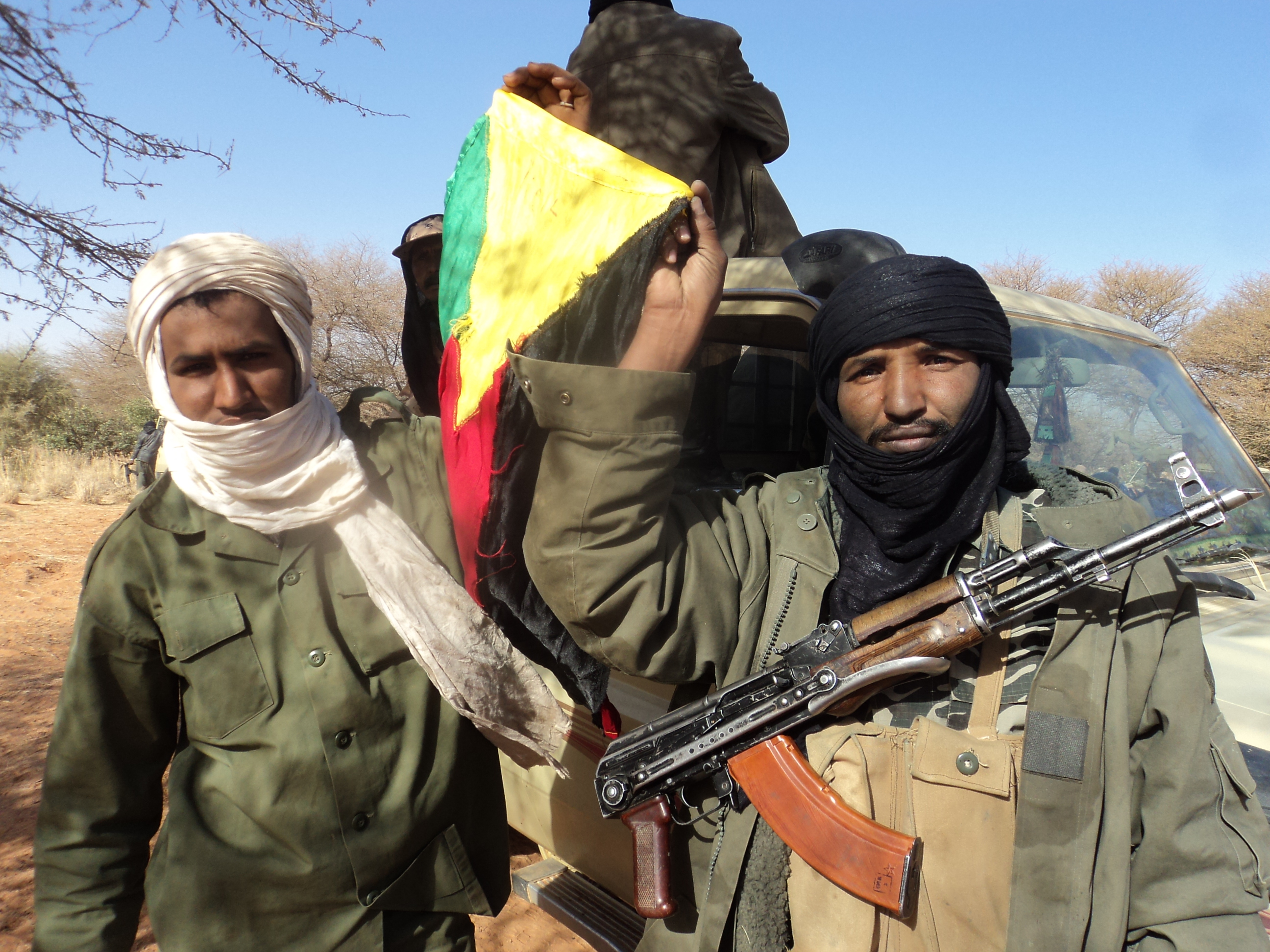
Tuareg ethnonationalist militants who launched the most recent phase of their insurgency in Mali in 2012 are now linking with ideologically similar militants in neighboring Niger.
“The Malian and Nigerien rebels have decided to assist each other, but also to defend their interests together on the international level.”
Since 2021, West African security and political dynamics have deteriorated as a result of coups by military juntas in the region’s three central states—Niger, Mali, and Burkina Faso. In July 2024, these three juntas agreed to a new regional Alliance of Sahelian States (AES) after leaving the preexisting regional bloc, the Economic Community of West African States. They replaced Western military support with that of the successor to Russia’s Wagner Group, known as the Africa Corps. Now, however, two of the Sahel’s ethnonationalist and mostly secular Tuareg rebel groups, the Patriotic Liberation Front (FPL) in Niger and the Strategic Framework for the Defense of the People of Azawad (CSP-DPA)[i] in Mali, have formed their own alliance.
According to the excerpted French-language article from French state-owned radio news website rfi.fr, both the FPL and CSP-DPA oppose the respective juntas that are now ruling their countries. The main function of their newly established alliance is for both rebel groups to promise to aid each other in the case of an attack by AES armies, forcing them to confront a more complex and even multi-national insurgency. The article also states that the FPL and CSP-DPA plan to defend each other’s interests on the international level, although whether that entails advocacy or operations or both is left ambiguous. However, by targeting Chinese-funded pipeline projects, the FPL insurgency has already achieved internationalized operations status. The FPL believes such projects fund the junta in Niamey at the expense of predominantly Tuareg and other minority regions of Niger.[ii] Such attacks serve as a form of leverage and pressure against the junta.
The article also highlights that the alliance-making meeting between FPL and CSP-DPA leaders occurred in the northern Malian town of Tinzaouatène. This town near the Algerian border is the CSP base, and the Coordination of Azawad Movements (CMA), which is under the CSP umbrella,[iii] and the al-Qaeda-affiliated Group of Supporters of Islam and Muslims massacred dozens of African Corps and Malian troops in separate attacks on 28 July. According to the article, the Tinzaouatène meeting sent a message that the new FPL and CSP-DPA alliance could launch similar massacres if their goals for independence or autonomy are not met. This would represent a new development in the Sahel, where Tuareg rebel groups have historically remained relatively independent of each other and have mostly focused on reacting only to their own nation’s political and military developments.
At a time when the AES military juntas have largely lost legitimacy internationally and when Africa Corps is reeling from the massacre it suffered at the hands of the CMA, the FPL and CSP-DPA are escalating their confrontation with the embattled juntas in the political, military, and international realm. Neither group is particularly antagonistic towards the United States or the West. However, even if democratic rule eventually returns, their strengthening insurgencies will make it more difficult to reunite Mali and Niger and restore sovereignty to both nations.
Sources:
“À Tinzaouatène, les rebellions du Niger et du Mali se réunissent pour renforcer leurs relations (In Tinzaouatène, rebellions from Niger and Mali meet to strengthen relations)),” Radio France Internationale (French state-owned radio news website reporting on international affairs), 28 August 2024. https://www.rfi.fr/fr/afrique/20240901-%C3%A0-tinzaouat%C3%A8ne-les-rebellions-du-niger-et-du-mali-se-r%C3%A9unissent-pour-renforcer-leurs-relations
The delegation of the Niger rebels of the Patriotic Liberation Front (FPL) was led by Barak Taher Hamit, who holds the title of “commander-in-chief” of the armed movement opposed to the Niger junta. The delegation of the Malian rebels of the Strategic Framework for Defense (CSP) was headed by Alghabass Ag Intalla, who is the leader of the militant group and opponent of the Malian junta. To begin discussions with an aim towards strengthening relations between them, the site of the meeting was quite symbolic: Tinzaouatène in northern Mali, located on the Algerian border.
During the meeting, no document was signed, or at least not made public. But the Malian and Nigerien rebels have decided to aid each other, and also to defend their interests together on the international level. According to sources close to both parties, other meetings are being planned about “fighting hand in hand against the militaries in power in Mali and Niger”.
Notes:
[i] “Azawad” is the term that Tuareg ethnonationalists use to refer their homeland.
[ii] In June 2024, the FPL, for example, disabled a section of Niger’s PetroChina-funded crude oil pipeline with the intent to force China to cancel a deal between the junta and China National Petroleum Corp (CNPC). See: Emmanuel Addeh, “Tensions Escalate As Armed Group Attacks Niger’s PetroChina-Funded Pipeline, Threatens More Attacks,” Arise.TV, 19 June 2024. https://www.arise.tv/tensions-escalate-as-armed-group-attacks-nigers-petrochina-funded-pipeline-threatens-more-attacks/
[iii] See: “Northern Mali: A Conflict with No Victors,” ICG, 13 October 2023. https://www.crisisgroup.org/africa/sahel/mali/nord-du-mali-une-confrontation-dont-personne-ne-sortira-vainqueur
Image Information:
Image: Tuareg ethnonationalist militants who launched the most recent phase of their insurgency in Mali in 2012 are now linking with ideologically similar militants in neighboring Niger.
Source: Magharebia, https://commons.wikimedia.org/wiki/File:Le_Mali_confront%C3%A9_aux_sanctions_et_%C3%A0_lavanc%C3%A9e_des_rebelles_islamistes_(6904946068).jpg
